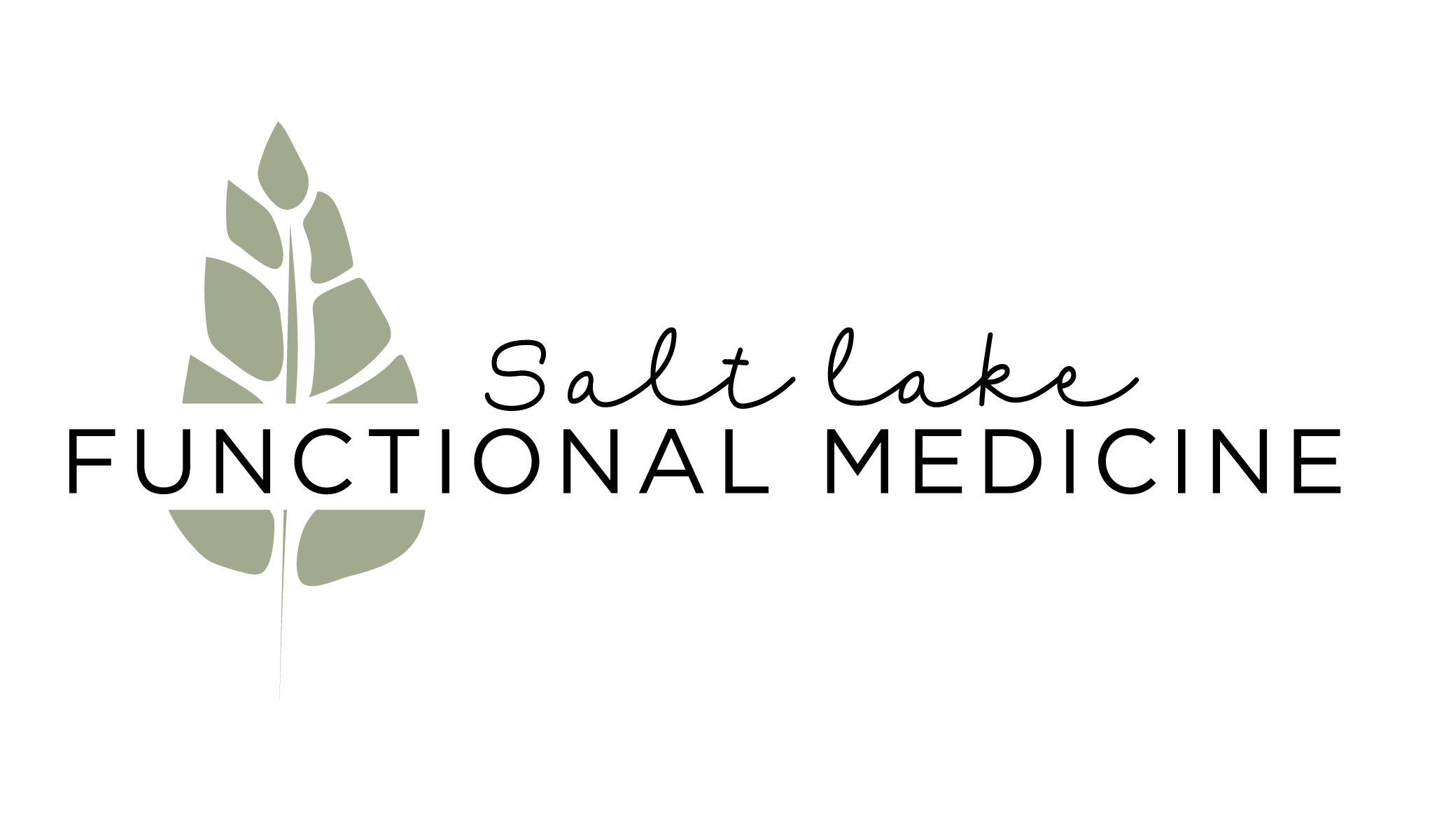Gastroesophageal Reflux Disease (GERD):
Addressing the Root Cause
Gastroesophageal Reflux Disease (GERD) is a chronic condition where stomach acid frequently flows back into the esophagus, the tube connecting the mouth and stomach. This backflow, known as acid reflux, can irritate the lining of the esophagus and cause a variety of uncomfortable symptoms. At Salt Lake Functional Medicine, Dr. Tiffani Fries offers a functional medicine approach to address the root causes of GERD and provide lasting relief.
Understanding GERD
GERD occurs when the lower esophageal sphincter (LES), a ring of muscle at the bottom of the esophagus, doesn’t close properly. This allows stomach acid to flow back up into the esophagus, causing irritation and inflammation.
Common Symptoms of GERD:
- Heartburn (a burning sensation in the chest)
- Regurgitation (the sensation of acid backing up into the throat or mouth)
- Difficulty swallowing
- Chest pain
- Chronic cough
- Hoarseness
- Sore throat
Factors that can Contribute to GERD:
Hiatal hernia:
A condition where part of the stomach protrudes through the diaphragm.
Obesity:
Excess weight can put pressure on the stomach and LES.
Pregnancy:
Hormonal changes and increased abdominal pressure during pregnancy can contribute to GERD.
Certain foods and drinks:
Trigger foods can vary from person to person but often include fatty foods, spicy foods, chocolate, caffeine, and alcohol.
Smoking:
Smoking weakens the LES.
Certain medications:
Some medications can relax the LES or irritate the esophagus.
Low stomach acid:
Ironically, low stomach acid can also contribute to GERD symptoms.
The Salt Lake Functional Medicine Approach to GERD
Dr. Fries, DC takes a comprehensive approach to diagnosing and treating GERD, focusing on identifying and addressing the underlying factors contributing to the condition. This may involve:
Detailed Assessment:
A thorough evaluation of your health history, symptoms, diet, and lifestyle.
Advanced Testing:
In some cases, testing may be recommended to assess stomach acid levels, identify food sensitivities, or rule out other underlying conditions.
Personalized Support Plans:
Based on your individual needs, Dr. Fries, DC will develop a tailored plan that may include:
Dietary Modifications:
Identifying and eliminating trigger foods, reducing meal size, and avoiding eating close to bedtime.
Lifestyle Changes:
Losing weight if needed, quitting smoking, elevating the head of the bed during sleep, and managing stress levels.
Supplementation:
In cases of low stomach acid, targeted supplementation may be used to support optimal digestion. Other supplements may be recommended to soothe the esophageal lining and promote healing.
Addressing Underlying Causes:
If other conditions like hiatal hernia or food sensitivities are contributing to GERD, Dr. Fries, DC will work with you to address these issues.
Finding Long-Term Relief
At Salt Lake Functional Medicine, we aim to provide long-term relief from GERD by addressing the root causes of the condition. By making sustainable lifestyle changes and supporting your body’s natural healing processes, we believe you can experience significant improvement in your digestive health and overall well-being.

